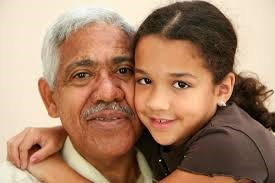Parent Training: Non-Birthparent Grief and Loss
A non-birthparent experiences grief and loss differently about their child with mental health conditions than parents.

Parent training requires that both the parent and the non-birthparent deal with their grief and loss of their child’s mental health conditions. The child’s special needs bring extensive stress to their family situation, as it creates a loss for the parents. They have hopes and dreams for their child, in terms of school, relationships, marriage, and happiness. But when a child grows and has emotional difficulties, the parents can be devastated by the child’s lack of “normalcy”. Virginia LaFond, in her book, Grieving Mental Illness, discusses how unacknowledged grief can be emotionally exhausting for the parents if not addressed.
But for the non-birthparent who has a child, loss also exists as well. For the adoptive or foster parent who takes in a child because of their infertility, loss occurs. They have to go through the stages of grief and loss as it equates to a loss of the ability to have their own child. In addition, the child they adopt or foster may not live up to their expectations due to the child’s mental health needs. This can lead to extensive stress.
And for the grandparent who is the caregiver, the role of being a “parent” again brings with it mixed feelings. The grandparent thought they were going into their “golden years” and have freedom from work or raising a family. But due to the parent’s absence, due to drug use, incarceration, or other reason, the grandparent must step into their role. More than 13 million children are living in homes with their grandparents, who have some role in their upbringing. The more involved the grandparent may be, anger, frustration, and deference may be felt because their role in life changes. This is their example of grief and loss.
In parent training, the non-birthparent must first deal with their own grief and loss before they can concentrate on their child. Dr. Elisabeth Kubler-Ross discussed the five stages of grief (denial, anger, bargaining, depression, and acceptance). These all apply to the loss of the parenting experience as they want it to be. Most parents are in denial of these feelings and don’t want to admit it. “My child is fine, there’s nothing with her.” “Why should I feel any loss, I’m happy to have a child.” But inside, parents feel guilt and shame over wanting something different than their child and not accepting the child with mental health conditions. Through confronting the grief and loss they experience, whether they agree or not, the concept percolates for a while until it hits them. Then they move through the grieving process.
As with any grieving process, it is not a linear one. But in parent training, helping the parent achieve well-being comes before parenting skills.
Dan Thorne, the President of Praxes, developed the Intensive Parent Model training program. It has been used throughout the country by hundreds of professionals. It is available online or contact us to learn about a training program for your agency.




